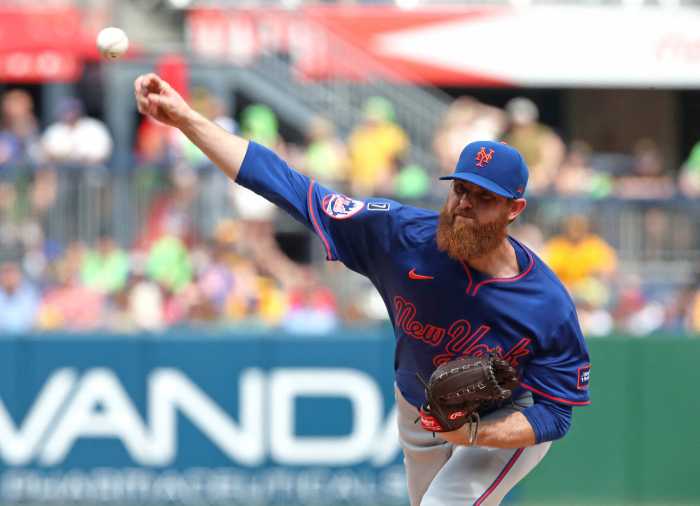Baseball fans were unfairly teased on Wednesday night when news broke that the two feuding negotiating parties — MLB commissioner Rob Manfred and players’ union chief Tony Clark — held talks in the same room in Phoenix, AZ.
Just moments later, MLB insider Jon Heyman reported that the league and players were “closing in” on an agreement to get on the field in 2020.
Fans rejoiced. The players were getting the full prorated salaries they desired, the league was getting a guarantee that the union would not file a grievance AND their expanded playoffs (16 teams instead of 10) they wanted while the fans were about to get a universal designated hitter. Everyone was about to win.
Except the deal wasn’t close — the union making it clear shortly after Heyman’s report that there was no agreement — and that it was more of a framework.
The 60-game schedule proposed in the framework is still on the low side for the players, who are reportedly looking for at least a 70-game season. So it returns baseball fans to Square 1 in not knowing what’s on the horizon.
This week has been a turbulent one in terms of the viability of having baseball in 2020. After guaranteeing last week that there will be baseball, Manfred went on ESPN on Monday and said that he was “not confident” they would play this year, which led to finger-pointing and accusations flying from every corner of the negotiating table.
What can be agreed on is that the face-to-face meeting and this proposed framework is minimal progress. But there could very well be a gargantuan caveat that comes with it.
If you’re into a good conspiracy theory like I am, the evidence laid before us suggests that Wednesday’s reports were fueled by the owners to make the union look like the bad guys in these negotiations. Someone from Manfred or the owners’ camp leaked to Heyman that a deal was close to build excitement only for the players to temper expectations and be the ones to let down the fans.
Okay, tinfoil hats off for now, even though it doesn’t seem too farfetched at this point.
If the only thing that is preventing this framework from becoming the real deal is the season length, it’s once again coming down to the frugality of the owners.
A 60-game schedule under these parameters heavily favors the owners compared to the players. They get hundreds of millions of dollars in television revenue that comes with the expanded playoffs along with the safety of not being sued by the players.
Adding 10 additional games to make the players happy shouldn’t be that big of a deal — and would be a show of good faith by the league. ESPN’s Buster Olney did the math, revealing it would cost the owners an extra $245 million to expand the schedule by that much, meaning each team would have to fork over an additional $8.1 million.
If they can’t pull off such a simple tweak, it only shows their overwhelming greed and their unwillingness to work with the players — which was already obvious when they backtracked on their initial agreement in March to dole out prorated salaries that created this whole mess.





































